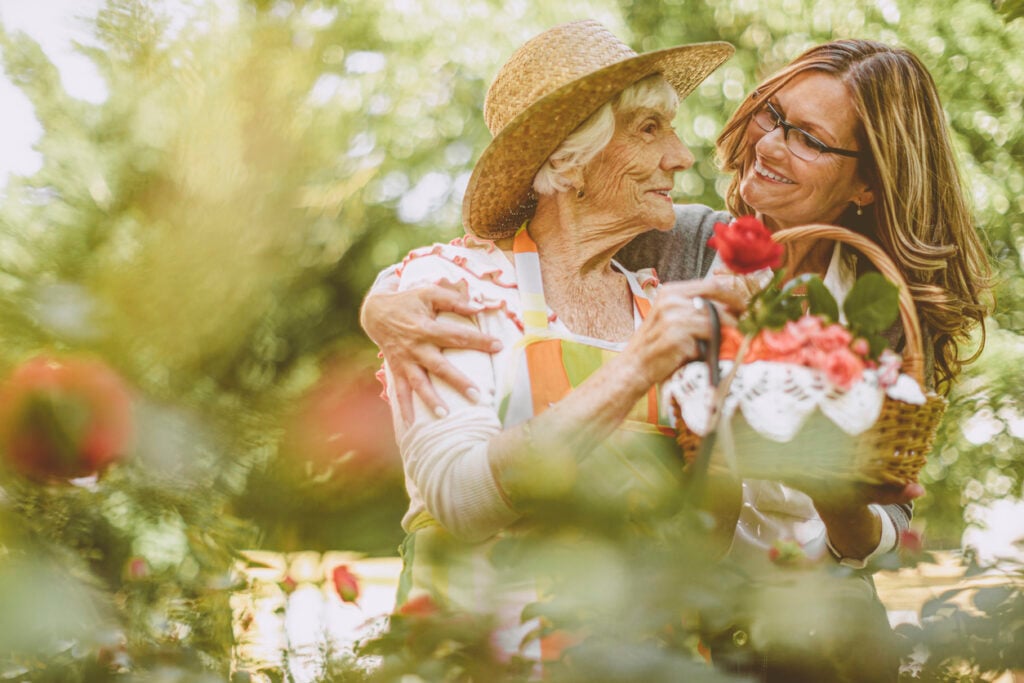Uncover the powerful habits that help seniors lead happier, more fulfilling lives.

Aging can be a rewarding journey, especially for those who cultivate positive habits that lead to lasting happiness. It’s not just about longevity—it’s about living well. Seniors who report the highest levels of contentment often have routines and mindsets that allow them to experience meaning, joy, and connection in their everyday lives. By adopting certain proven practices, you can nurture a sense of purpose and peace that continues to grow richer with time.
Research consistently shows that these intentional habits contribute to greater well-being, stronger relationships, and deeper life satisfaction. While the road of aging comes with its share of challenges, developing a toolkit of practices that support emotional resilience and positivity can transform your experience. These habits aren’t about perfection—they’re about progress and presence. Here are twelve powerful practices to help you lead a happier, more fulfilling life as you age.
1. Massively Engaged in Life

One of the most effective ways to elevate your happiness is to immerse yourself in activities that deeply engage your mind and body. This state, often described as “flow,” occurs when you’re so involved in what you’re doing that everything else falls away—time, stress, and even your sense of self, as mentioned by Wes Moss at Forbes. Whether it’s painting, gardening, learning a new language, or volunteering, finding tasks that pull you in completely adds a rich layer of purpose to your day.
When you commit to these fulfilling activities, they become more than hobbies—they become lifelines to joy and identity. It doesn’t matter if you’re solving puzzles or playing music; what matters is that you lose yourself in something meaningful. With consistent engagement, you not only build skills but also strengthen your emotional well-being and sense of vitality.
2. Savor Simple Joys

Happiness isn’t always found in the big milestones—it’s often tucked away in life’s quiet, gentle moments, according to writers at Human Care. The smell of fresh coffee, the softness of a cozy blanket, or the golden glow of an evening walk—these are everyday experiences waiting to be savored. Mindfulness invites us to fully notice and appreciate these small joys, stretching time and enriching the present.
Savoring requires a shift in focus. Rather than rushing past or multitasking through your day, give yourself permission to pause. Psychologist Sonja Lyubomirsky notes that documenting or sharing small pleasures boosts happiness levels significantly. Whether you speak them aloud, write them down, or simply feel them deeply, these mini-celebrations create a mental habit of appreciation. The more you notice the beauty in the ordinary, the more extraordinary your daily life becomes.
3. Be Quick to Forgive

Forgiveness isn’t about forgetting or excusing wrongs—it’s about releasing yourself from the toxic grip of anger and resentment. Holding onto pain, whether from others or yourself, keeps you tethered to suffering. When you learn to forgive, you loosen that grip and create space for emotional freedom and inner calm. Forgiveness becomes an act of strength and self-care, not weakness or surrender.
Even when apologies don’t come, you can choose to let go for your own peace. This doesn’t mean you approve of what happened, but it does mean you won’t allow it to poison your present. Seniors who practice forgiveness report higher levels of happiness and lower levels of stress and depression, as reported by Lily Green at Total Life. Forgiveness opens a pathway to serenity and allows you to carry less emotional baggage into each new day, making life lighter and more joyful.
4. Random Acts of Kindness

Doing something kind for someone else—no matter how small—has a remarkable effect on your mood and outlook. Kindness is a form of emotional generosity that instantly connects you with others. Whether it’s offering a sincere compliment, holding the door open, or leaving a thoughtful note, these little acts remind you that you can be a source of good in the world.
Over time, these gestures ripple outward, creating a positive feedback loop. When you act kindly, you not only brighten someone else’s day—you boost your own mood, increase your self-worth, and strengthen your sense of connection. Neuroscience even shows that kindness releases oxytocin, which helps lower blood pressure and increases feelings of love and empathy. The more you practice kindness, the more natural it becomes, infusing your life with warmth and purpose.
5. Nurture Your Relationships

Meaningful relationships don’t just happen—they’re cultivated with care, attention, and love. Especially in later life, these bonds become lifelines to emotional and mental well-being. Prioritizing your connections—whether with a partner, family, or lifelong friends—provides a strong foundation of support and belonging. These relationships become safe harbors through life’s inevitable storms.
Even a quick phone call, a heartfelt message, or scheduling regular visits can deepen those ties. Distance and time might make it harder to maintain relationships, but consistent effort keeps them alive. Many seniors report that their happiest moments involve shared laughter, support during difficult times, and meaningful conversations. The key is to invest in your people—because when you feel connected, you feel more alive.
6. Cultivate Optimism Around Everyone

Optimism isn’t about pretending everything’s perfect—it’s about choosing to believe that better days are possible. It’s an intentional mindset that colors how you view setbacks, relationships, and opportunities. If you tend to see the glass half-empty, don’t worry. Optimism can be developed like a muscle, strengthened through small daily practices.
Start by noticing your thought patterns and gently redirecting them. Instead of focusing on what went wrong, ask yourself what went right or what you can learn. Surround yourself with uplifting people and media that support your efforts to stay hopeful. Over time, this positive reframing creates a more resilient, joyful perspective on life. Optimism doesn’t deny reality—it empowers you to face it with courage and grace.
7. Avoid Comparisons and Overthinking

It’s easy to fall into the trap of comparing your life to others, especially in a culture that celebrates constant achievement and youth. But comparison steals joy and breeds dissatisfaction. When you measure your worth by someone else’s story, you diminish your own. Focus instead on your unique path, your personal victories, and your evolving values.
Overthinking often goes hand-in-hand with comparison. Rumination over what could have been, what others think, or what might go wrong can drain your energy and joy. One powerful antidote is intentional action—engage in meaningful hobbies, spend time in nature, or speak with someone you trust. Shift your attention away from mental loops and toward life-affirming activities. That’s where contentment truly begins to take root.
8. Develop Coping Strategies

Challenges don’t disappear with age, but your ability to handle them can grow stronger. Having a solid set of coping strategies helps you face difficulties with confidence and grace. Whether it’s deep breathing, journaling, movement, or prayer, these tools provide an emotional anchor during life’s unpredictable moments.
Coping strategies act like emotional insurance—ready when you need them most. They allow you to process emotions without being overwhelmed and help you respond thoughtfully rather than react impulsively. The most resilient seniors often credit these habits with helping them through grief, illness, and change. When you take time to build your coping toolkit, you empower yourself to meet life’s hardships with calm and clarity.
9. Be Effusive with Gratitude

Gratitude shifts your mindset from what’s missing to what’s abundant. It’s a powerful antidote to dissatisfaction, bringing attention to life’s blessings—both big and small. When you make gratitude a daily habit, it transforms how you interpret events and interact with the world. Suddenly, the ordinary becomes precious.
Keep a simple gratitude journal or speak your thanks aloud in quiet moments. Acknowledge people who’ve supported you, the beauty you witness, and the comforts you enjoy. This practice rewires your brain toward positivity and resilience. Grateful people tend to be happier, healthier, and more optimistic. It’s not about ignoring problems—it’s about anchoring your awareness in appreciation, which creates a richer, more joyful experience of life.
10. Practice a Spirituality Routine

Spirituality can be a wellspring of peace and perspective, especially in later life. For some, that means traditional religious practices. For others, it’s a more personal connection to nature, the universe, or a sense of higher purpose. Regardless of the form it takes, spirituality can anchor you in something bigger than yourself.
Engaging regularly with spiritual practices—whether meditation, prayer, attending services, or solitary reflection—helps you connect to a deeper sense of meaning. This connection often provides comfort during life’s uncertainties and a renewed sense of inner peace. It’s not about dogma but about cultivating a sense of the sacred in daily living. When spirituality becomes a habit, it often leads to greater contentment and emotional grounding.
11. Set and Commit to Goals

Having something to strive toward keeps life exciting and purposeful. Whether it’s starting a new project, improving your health, or learning something new, goals give direction and clarity. They add structure to your days and a sense of momentum to your journey. It’s not about grand achievements—it’s about meaningful progress.
Small, achievable goals often spark the most consistent joy. Write them down, track your progress, and celebrate your wins. Committing to goals builds confidence and provides proof that growth is always possible, regardless of age. As you work toward your aspirations, you’ll likely feel more capable, energized, and engaged with life. Every small step forward becomes a declaration of your vitality and vision.
12. Take Care of Your Body

Your physical health forms the foundation for everything else you hope to enjoy. Maintaining mobility, energy, and strength allows you to engage more fully in your relationships, hobbies, and passions. Regular movement, nourishing food, and quality sleep are not luxuries—they’re essentials for a happy, vibrant life.
You don’t have to run marathons or follow restrictive diets. Simple actions like stretching daily, eating whole foods, and going for a morning walk can dramatically improve how you feel. Taking care of your body also shows respect for yourself—it’s a way of saying you matter. When your body feels supported, your mind follows suit, paving the way for a more joyful and connected experience of aging.
